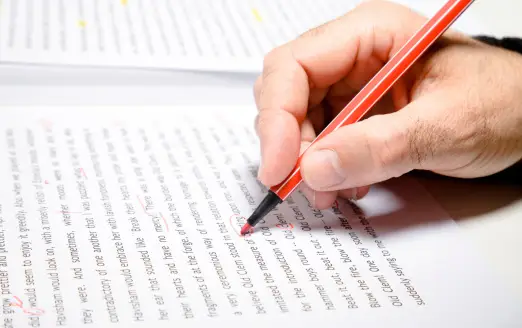How to Update a Wikipedia Page?
Wikipedia is a mountain of knowledge which offers full descriptions of almost every imaginable subject. However, it maintains and creates its limitless supply of knowledge differently. Wikipedia is open to anybody with an internet connection, unlike traditional encyclopedias, therefore anyone can add to its content.
But one question is how do you update a Wikipedia page content? Let’s talk about updating a Wikipedia page. We will discuss everything from understanding the purpose of the platform to handling its rules and regulations and having your updates approved.

Understanding Wikipedia
Wikipedia is an online encyclopedia that is created, edited, and maintained by a global volunteer community. In 2001, Jimmy Wales and Larry Sanger founded this encyclopedia. The goal of Wikipedia is to give users global access to accurate, trustworthy, and free information.
Wikipedia works on an open collaborative approach, as compared to traditional encyclopedias, which are written and updated by professionals. Anyone can share knowledge on many different kinds of topics. A Wikipedia page creation service guides users in the editing process and helps them create their own page on Wikipedia.

Wikipedia Policies and Guidelines
The maintenance, accuracy and reliability of the information on Wikipedia is provided by its basic regulations and policies. The following are some important guidelines for editing and updating pages:
- Neutral Point of View (NPOV): All articles on Wikipedia need to be written with an unbiased viewpoint, carefully reporting the facts.
- Verifiability: All information included in Wikipedia has to be confirmable by credible sources. This guarantees that readers can verify the content’s correctness and legitimacy.
- No Original Research: You cannot post original ideas or research on Wikipedia. Instead, its content is supported by published sources.
- Citing Sources: Any claims made on Wikipedia should if possible, be supported by citations to trustworthy sources. This maintains the validity of the data being shown.

How to Update a Wikipedia Page?
A Wikipedia article can be updated easily, but for your edits to be approved, you have to stick to the platform’s rules. Here’s a step-by-step guide:
- Create an Account: You should create a Wikipedia account before editing. Even though you have the option to edit anonymously, having an account makes it easier to keep track of your efforts and collaborate with other editors.
- Go to the Page: Use the search bar to find the Wikipedia article that needs to be updated. To open the editing interface, click the “Edit” button at the top of the page.
- Make Your Edits: Use the available editing tools to change the page’s content. You can improve the content that already exists, add new information, or fix mistakes. When possible, make sure to include credible sources to back up your changes.
- Preview and Save: Press the “Preview” button to see how your changes will look on the page before saving them. Once you’re satisfied, click “Save changes” to submit your edit application. If done right, your request will get approved in no time.
How to Get Your Request Approved by Wikipedia Editors
Making minor adjustments is often easy, but there are some situations, including conflicts of interest, where you might need to take extra steps to get your request approved. Wikipedia page creation service providers also assist in this matter. The following tips can help you handle these circumstances:
Choose a Suitable Username
Don’t use names that are deceptive or promotional; instead, use a username that accurately represents who you are and your hobbies.
State Your Conflict of Interest in Advance
When attempting updates, please state any conflicts of interest you may have. Maintaining Wikipedia’s integrity demands transparency.
Explain the Conflict in Your Message
Give a clear explanation of the changes you’re making and how they will improve the article. Editors are more likely to understand your motives if you provide context.
Avoid Writing Prolonged Editing Requests
Make sure your requests are clear and straightforward. Long, complicated communications can be ignored or discounted. You can also hire a Wikipedia page creation service that will help you with the process.
Cite Regulations and regulations
Use relevant Wikipedia regulations and guidelines to support your edit request. This indicates that you are aware of the platform’s guidelines.
Use the Conflict of Interest Template to Request
When editing Wikipedia, there are templates available for claiming conflicts of interest. Make use of these templates to guarantee that your request is processed correctly.
Be kind and Patient
Remind yourself that Wikipedia editors are volunteers who give their time for the maintenance of the site, so be patient and kind. Even if processing your request takes some time, treat the other person with patience and respect.

The 5 Pillars of Wikipedia
The “five pillars” refer to a collection of basic rules that all editors are supposed to follow while adding content to Wikipedia. These rules help in maintaining the encyclopedia’s objectivity, integrity, and educational use.
Wikipedia is an Encyclopedia
Individuals must understand that Wikipedia is not a place to post original research, hypotheses, or ideas, especially those from the scientific community. The platform is designed to spread knowledge that has already been proven and approved by the intellectual and academic community.
So, unpublished data, hypotheses, or personal beliefs have no place in this case. This guideline guarantees that all information is true and derived from trustworthy sources.
Wikipedia is Free
This pillar highlights that no editor on Wikipedia owns an article. All contributions are open to unrestrained editing and redistribution. All editors willingly license their work to the public.
All editors must observe copyright regulations and avoid using any kind of plagiarism. It is occasionally acceptable for editors to borrow non-free media as long as they first look for free alternatives.
Wikipedia is Neutral
Authors should avoid using Wikipedia as a forum to promote their own goals, ideas, or perspectives because it is not a soapbox. The information provided should be completely unbiased.
It should represent a fair and balanced evaluation of recognized scholarly opinion and information. This guarantees that Wikipedia will always be a reliable and unbiased source of information.
Civility and respect
It’s important to present yourself with professionalism and respect while interacting with other contributors. There will always be disagreements, but they should be resolved respectfully and cooperatively.
Kindness promotes effective teamwork and helps in creating a friendly and encouraging environment.
No Strict Deadlines
Wikipedia does not have set schedules for its operations, as compared to the strict time frames commonly found in scientific research and publishing. Because of this flexibility, editors can give the necessary time to make sure that articles are accurate, thorough, and properly referenced. It allows a more mindful and thorough approach to writing and editing, which is required for an encyclopedia to be credible.
You can also use Wikipedia page creation service to make a new page. Wikipedia authors can work together successfully to build and manage a massive information base that helps people all over the world by following these five pillars.
Conclusion
Updating a Wikipedia article is a great way to share your knowledge and experience with people across the world. You can also make an important contribution to the biggest online encyclopedia in the world. You can add value to the collection of human information on Wikipedia by being aware of its goals, policies, and standards, as well as by following the right procedures for editing and requesting changes.
Keep in mind that every update you make affects the access of future generations to knowledge, whether you’re adding new content or correcting mistakes in the facts. Retick is an online reputation management agency that can help you in this process. Contact them today!


